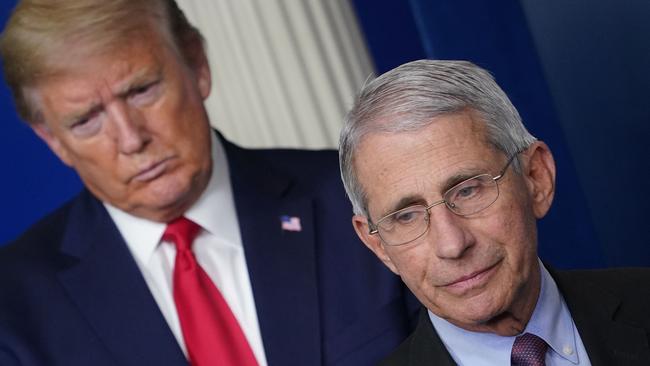
On Thursday, he told shareholders at the annual meeting that Asia sales grew by 14 per cent in the first quarter, but what wasn’t said was that China’s sales were up by more like 25 per cent.
Ford doesn’t want to talk up the market too much for fear of prompting a government reaction and right now he is caught in a perfect storm.
He can’t walk away from the market, which has promised so much and may return, and while he has alternate strategies, they await official government action while the rumours run wild regarding potential wine tariffs from China.
Fact is, performance across the board in the first quarter was strong but the market knows the jewel is China.
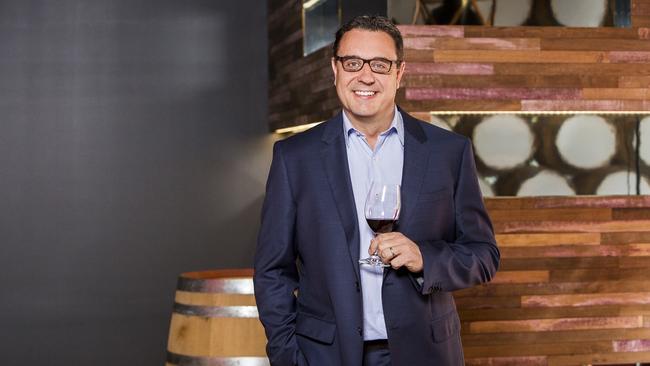
The uncertainty pushed his stock price down 8.2 per cent to a four-year low of $7.96, bringing the fall since January to 55 per cent and the value of the company down to $6.3bn.
On November 16 he has to respond to Chinese government questions on alleged dumping of wine after the case was first lodged on August 18 just as the latest Penfolds release was launched in Shanghai.
Daily there are new reports in China about blockades on Australian exports but Ford has heard nothing other than the Chinese industry has requested penalty tariff duties on Australian wine.
It’s the same game that BlueScope Steel and others play with Chinese exports to Australia — on which the Australian government refuses to accept Chinese prices for their dumping calculations.
Inevitably with perfect hindsight some say the company relied too much on China but Thursday’s sales performance shows just why the investment was made.
If TWE hadn’t invested the market would have said why not.
China last year accounted for 17 per cent of TWE’s sales and 35 per cent of earnings before interest and tax, and according to Bank of America, over the next three years it will account for $200m of the $273m increase in earnings forecast.
Ford naturally rejects outright suggestions the company is too reliant on China, saying there are growth options across Asia and the world, but the fact is, for sound strategic reasons, the company has placed a lot of eggs in the Chinese basket.
Until politics entered the ring the investment was an express train to corporate glory.
As noted last month, Ford is proceeding with the internal Penfolds split but plans to spin off the division are naturally enough on hold while the company looks at alternatives in China, such as joint venture partners and perhaps local bottling of his product.
It all depends on what the Chinese government decides to do and how big a penalty it imposes on sales of Australian wine.
Ford is supportive of Australian government efforts to support the industry, but right now he is playing in a game where the calls are being taken well above his head.
Covid surge in US
On Thursday, after news that the US recorded 100,000 new COVID cases in a single day, it also emerged that 68.6 million Americans had voted for Donald Trump — the same president who back in June slammed infectious diseases expert Anthony Fauci for being an alarmist when he had warned that without controls that threshold would be reached.
Fauci was right and whether Trump will be returned is still up in the air.
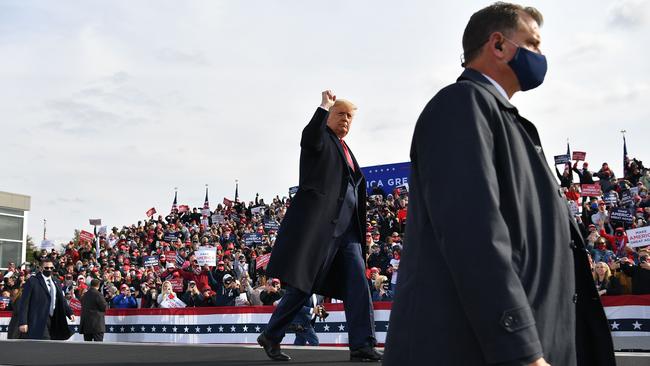
But gridlock in the presidential race and a divided Congress means the chance of major policy changes has diminished, which was taken as good news on Wall Street.
What is already known is Congress remains split with the Republicans controlling the Senate and the Democrats the House — this means the chance of Joe Biden pushing through dramatic changes is not good.
That is being interpreted as good for business.
But this is in stark contrast to the rally at the start of the week on the expectation that Biden would sweep to victory and bring in a big stimulus package.
Tech giants like Google, Amazon and Facebook also rallied strongly because the divided Congress also meant less chance of a regulatory crackdown. It should be remembered Trump instituted legal action against Google last month.
Also, the value of growth stocks looks better in a struggling economy.
Mortgage mayhem
The big banks are keen to move your mortgage to fixed terms because that is the best way they can make money from your loan and maintain market share, which is important to boost their stockmarket value.
In round terms the big four banks have $1.8 trillion in deposits on their books or 75 per cent of the total in the system of $2.4 trillion, with CBA the market leader with 25 per cent of total deposits, or $580bn.
In housing loans the big four control 79 per cent of them — again led by CBA with around $482bn worth. Around 23 per cent of these $1.5 trillion in loans are fixed.
Already, one problem emerges: the banks have more deposits on their books than home loans and as around half of these deposits are earning no money the bank can’t touch their rates.
The deposit book is a key way for the banks to fund their home loans but when the RBA cut its cash rates to 0.25 per cent this week none of the big banks touched their variable rates, which stand around 2.7 per cent.
One problem is too many deposits and not enough people wanting to borrow money.
The “competition” is happening in fixed rates with Jefferies analyst Brian Johnson noting CBA cut its four-year rate by 100 basis points to 1.99 per cent, lower than the standard variable rate.
This is good for customers, who have certainty, and better for banks, because then the mortgagee is locked in for four years and is not about to run to a competitor, while also giving the bank different funding options through the interest rate swap market.
Customers are best advised to only fix some of their mortgage because if they stumble on extra savings in the next four years they can’t touch the fixed loan but can reduce a variable loan.
The battle for banks is now between their so-called front book — being new loans that sell at a cheaper rate — and the back book, which earns more money.
The bank’s net interest margin is the difference between what the bank pays for money like deposits and what it earns from the money so the bigger the gap the better, which is made easier when they earn more.
But if too many customers move banks chasing lower rates then the banks’ margins fall further than the five basis point fall to 1.89 per cent in the latest round.
KPMG figures show cash profits for the big banks fell 36 per cent to $17.4bn, which isn’t chump change, but profitable banks are good for the economy and the total in 2017 was $31.5bn.
Return on equity for the big four fell 458 basis points to 6.7 per cent which shows NAB doing better at 8.3 per cent, with its boss Ross McEwan gunning for a return to low-single digits.


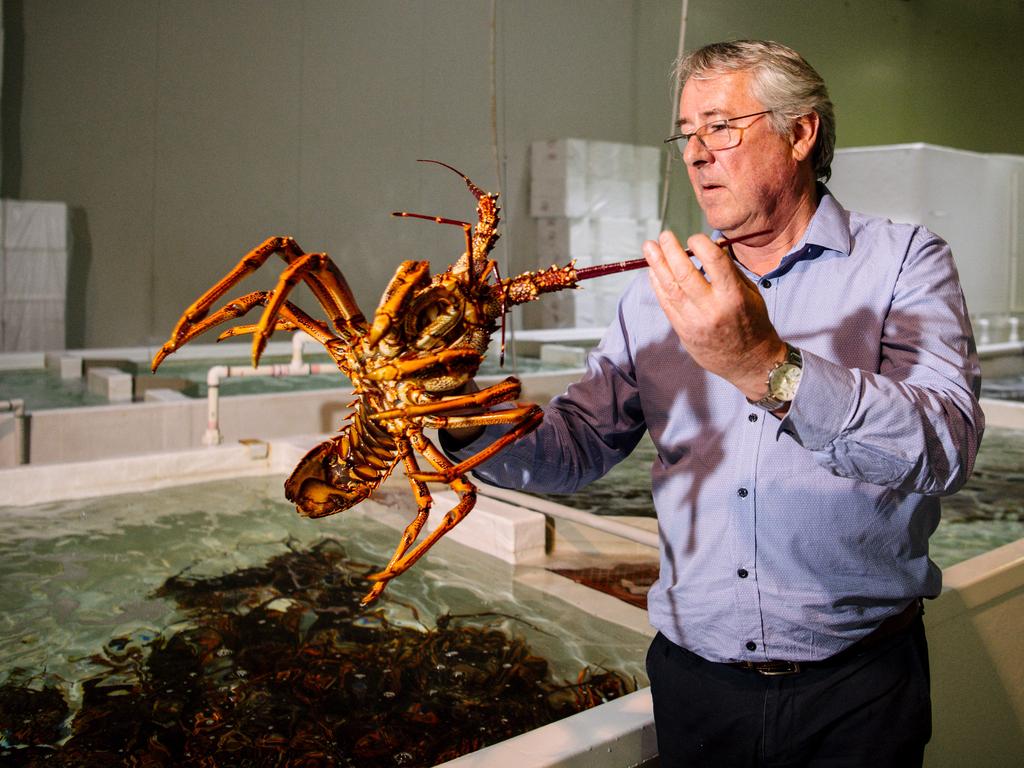


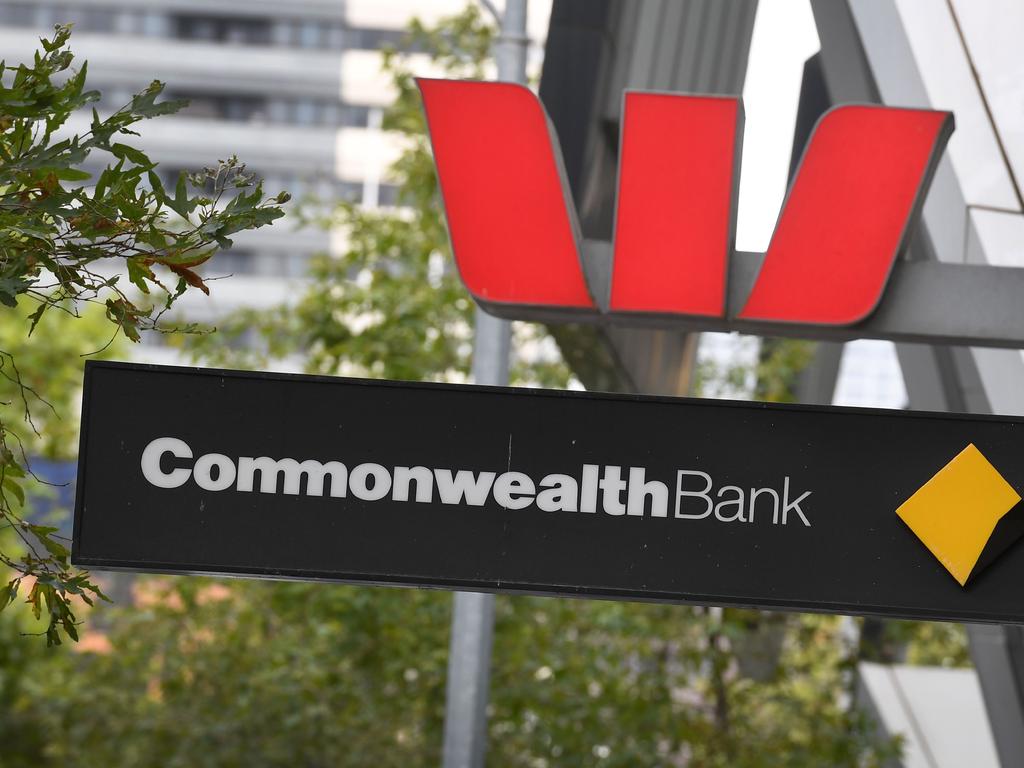


Treasury Wine Estates boss Tim Ford is caught in a crisis that he had nothing to do with but threatens to halt his immediate growth prospects.